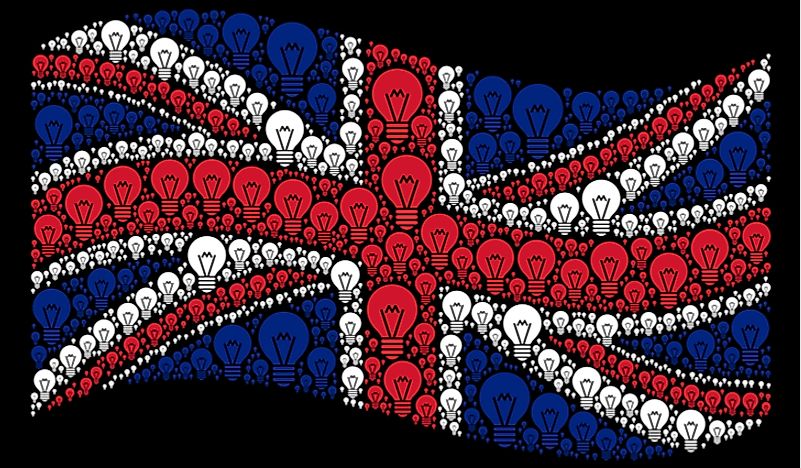Famous British Inventions

England has produced brilliant inventors whose ingenuity have shaped the modern world, including those such as Newton, Faraday, and Graham Bell. Around the year 1600, the country was experiencing the scientific revolution where science and technology were seen as having the potential for economic and social advantages. Innovations surged with the establishment of the Royal Society in Britain to whom the monarchy allocated funds for research and inventions in late 1660. The Royal Society was followed by the setting up of the Royal Astronomy which facilitated inventions in astronomy. From 1700 onwards there was the proliferation of Science and research institutions which elevated England to the forefront of industrialization and consequently economic success.
Examples of Great English Inventions
Reflecting Telescope
Isaac Newton invented the Reflecting Telescope in 1668 as an alternative to the then-used refracting telescope. The refractive telescope was subject to spherical and chromatic distortions and produced blurry images. It used mirrors instead of lenses to form images. The reflector telescope was not only better than the refracting telescope, but it was cheaper to make as well. This invention revolutionized astronomy and influenced technological advancements on the reflecting telescope such as the Cassegrain Telescope by the French priest Laurent Cassegrain.
After the invention, the reflecting telescope was the primary telescope used although there was a brief re-emergence of refractor telescopes. Isaac Newton’s invention set the foundation for the advanced telescopes used today as all of them are reflecting telescopes. Newton made other numerous discoveries in different fields.
Electric Motor
Before Michael Faraday’s invention of the electric motor in 1821, there had been attempts at harnessing electrical energy into motion. Faraday’s invention created magnetic rotation through mercury. The invention was first made in the form of ideas and sketches until it was done practically. It was not a seamless invention however as further inventions and innovations molded in into the electric motor used to the present day. Michael Faraday is credited with putting forward the principles that set the basis of today’s electromagnetic technology.
Telephone
The Scottish-born Alexander Graham Bell is credited with the invention of the telephone in 1876. Alexander Graham had a fascination for human speech and was obsessed with using electronic currents to reproduce it. After his invention, he demonstrated the telephone through telegraph lines to curious onlookers. The first words Alexander Graham uttered through the phone were “Mr. Watson, come here! I want to see you” to his assistant. The popularity of the telephone from that time was on an upward trajectory. Bell set the foundation for further developments and advancements to make the telephone what it is today.
Water Proof Material
The Scottish chemist Charles Macintosh was credited with the invention of the first waterproof material in 1823. He discovered that joining two pieces of cloth in a solution of dissolved India rubber in coal made a fabric un-penetrable by water. He founded his company after and set about to produce waterproof coats named Mackintosh. Waterproof coats today are still known by this name. These coats are still purchased to date. Notably, it was used as an outfit for the Arctic Expedition in 1924.
Other Notable British Inventions
Other notable inventions by British inventors are Hypodermic syringe, Alexander Wood (1853), Toothbrush, William Addis(1770), Soda water, Joseph Priestley (1772), Cement, Joseph Aspdin (1824), Photography, William Henry Fox Talbot (1835), Light bulb, Joseph Swan (1880), Thermos flask, Sir James Dewar (1892), Television, John Logie Baird (1925), Hovercraft, Christopher Cockerell (1953), World Wide Web, Tim Berners-Lee (1989), Steam turbine, Charles Parson (1884), ATM, John Shepherd-Barron (1967), Military tank, Ernest Swinton (1914), Stainless Steel, Harry Brearley (1913), and Electric Vacuum cleaner, Hubert Cecil Booth (1901). Britons have continued to invent and innovate in the 20th and 21st centuries. Notable of these inventions includes palmtop the computer (1979), Bluetooth (2000) and the first SMS message sent (1992).
The Greatest British Inventions And The Inventors
| Inventor | Invention | Year |
|---|---|---|
| Isaac Newton | Reflecting telescope | 1668 |
| Electric motor | Michael Faraday | 1821 |
| Telephone | Alexander Graham Bell | 1876 |
| Waterproof material | Charles Macintosh | 1823 |
| Hypodermic syringe | Alexander Wood | 1853 |
| Toothbrush | William Addis | 1770 |
| Soda water | Joseph Priestley | 1772 |
| Cement | Joseph Aspdin | 1824 |
| Photography | William Henry Fox Talbot | 1835 |
| Light Bulb | Joseph Swan | 1880 |
| Thermos flask | Sir James Dewar | 1892 |
| Television | John Logie Baird | 1925 |
| Hovercraft | Christopher Cockerell | 1953 |
| World Wide Web | Tim Berners-Lee | 1989 |
| Steam turbine | Charles Parsons | 1884 |
| ATM | John Shepherd-Barron | 1967 |
| Hovercraft | Christopher Cockerell | 1953 |
| Military tank | Ernest Swinton | 1914 |
| Stainless Steel | Harry Brearley | 1913 |
| Electric vacuum cleaner | Hubert Cecil Booth | 1901 |











